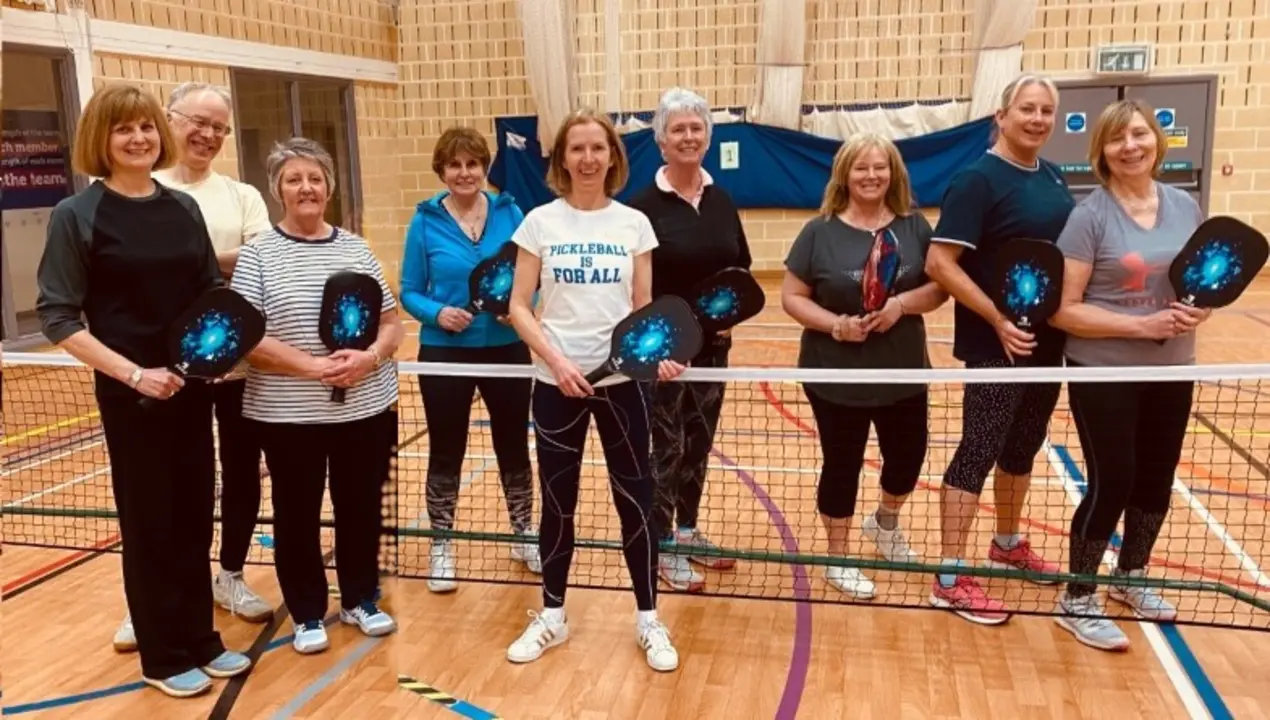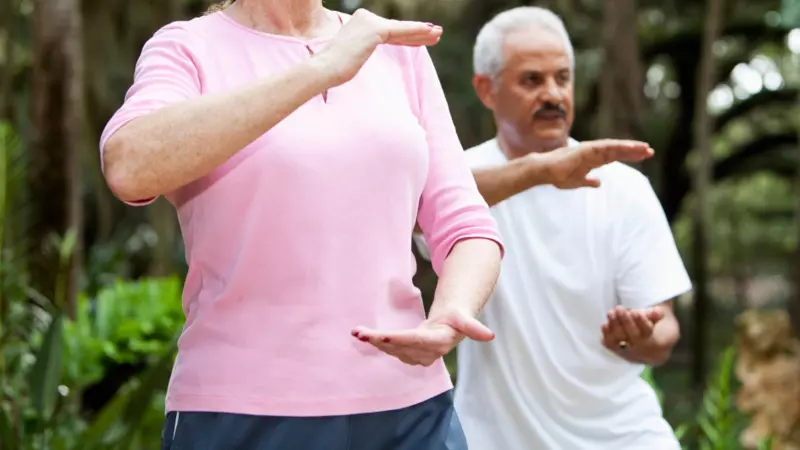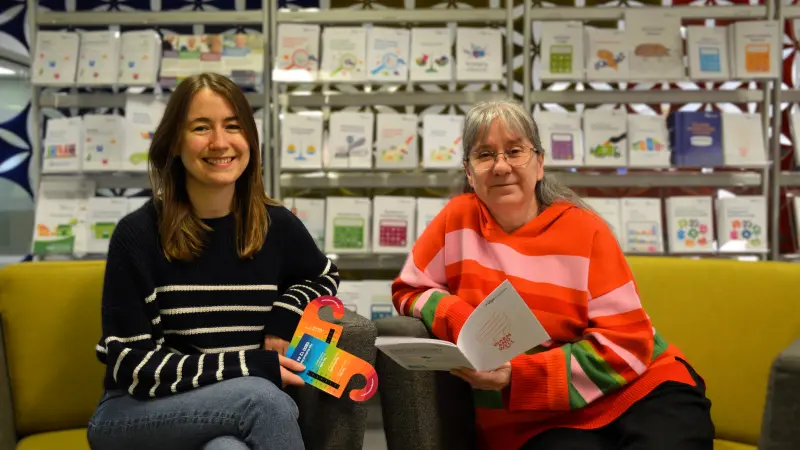Why age-friendly pickleball is taking the sports world by storm

Our Health and Wellbeing Team were delighted to meet Sandra Macrae at a recent conference on physical activity. Sandra is the inclusion lead for Pickleball Scotland and here she shares her experience of one of the fastest growing sports in the world, how it supports her and others to be active and have fun in later life.
In 2022, I was looking for a sociable, fun physical activity that would be easy to pick up, not too demanding and help me get more active. I was recovering well from serious illness and life-changing surgery, but my doctor had advised me that it would be healthy for me to start exercising regularly to help improve my strength, balance and flexibility.
At the same time, however, she warned me to take it easy and be careful. Conundrum! What sort of activity would be safe and not too demanding whilst helping to gradually improve my physical and mental health? I tried different things – the gym, yoga, and a fitness class – but what I really wanted was the sort of activity that didn't feel like an exercise regime. In other words, what was missing from some activities was laughter, and I knew I needed fun more than anything else.
By chance, I discovered that weekly community-access pickleball sessions had started up at a local college in their indoor sports hall and new members were being welcomed regardless of their ability level. Sounded promising. But, what on earth was pickleball? I soon found out that it was a racquet sport played on a badminton-sized court across a tennis-style net, using solid-faced paddles and a light-weight plastic ball with holes in it. I was intrigued but not sure it would be right for me as I hadn't ever played badminton, tennis or table-tennis. In fact, I'd not played much racquet sports at all – just a bit of squash a very long time ago when I was at secondary school.
So, to be honest, because I wasn't the sort of person who participated in any organised adult 'sports' and I lacked confidence, the thought of making a fool of myself nearly stopped me from going along just to see what pickleball was all about. I'm glad, however, that I did – because the game has helped me tremendously and inspired me to develop an adaptive version called Pickleball for Wellbeing that helps older adults access physical activity and experience the health benefits.
The joy of pickleball is that it's an all-year-round activity that can be played indoors in the winter, and with it being played on a smaller sized court than tennis, people with long term health conditions find it more manageable. The game is usually played recreationally as doubles pairings that rotate randomly, which means it's sociable and you play with lots of different people.
In a Pickleball for Wellbeing activity, the emphasis is co-operative participation, enjoyment, and laughter, not competition. Organisers can modify the game depending on the individual needs of each player, and sometimes the court space is reduced to make it even easier. Each game rotation lasts about 8 minutes or so, and players take rest-breaks between games - another reason why it's perfect for players like me who prefer an easy-going activity.
So, pickleball is worth trying if you want to laugh, make new friends, move more, and improve your health. If you get the chance to participate, my advice is: don't hesitate!
If you’d like to find out more about Pickleball Scotland and Pickleball for Wellbeing, you can see details here.
If you’d like to find out more about Age Scotland’s Health and Wellbeing Team resources and support for healthy active ageing, you can read more here.


